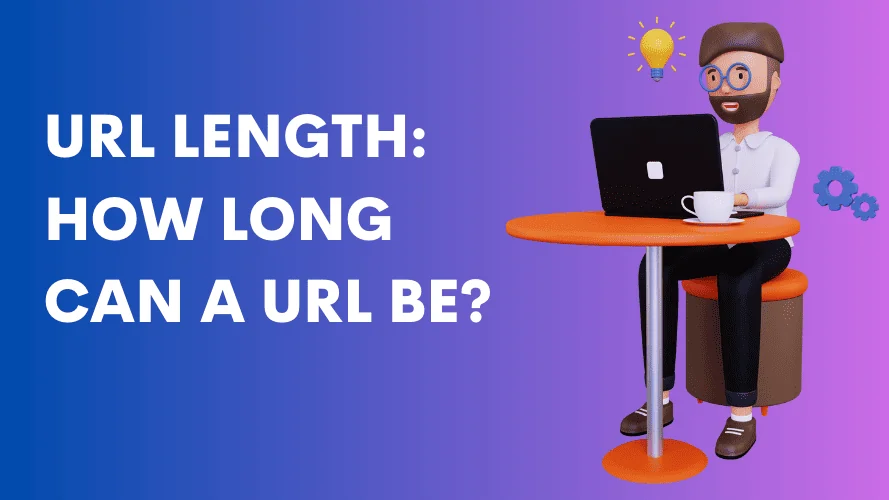Stop words in SEO are common words (or empty words) that search engines often filter out when indexing content. For example, consider the keywords “best Indian restaurants in New York” and “top Indian NYC restaurants.”
Words like “best,” “top,” and “in” are considered as stop words in this context. Removing these words does NOT change the INTENT behind the search query, which is “finding Indian restaurants in New York.”
However, stop words are essential for natural language and readability. So, while stop words aren’t bad, using too many can negatively impact the reading experience and SEO performance. That’s why it’s important to find the RIGHT balance.
How do you do that? Let’s find out what they are and how they impact your content.
Table of Contents
What Are Stop Words In SEO?
Stop words in SEO are common generic words that search engines often omit during the process of understanding a search query.
Generally, stop words are used for grammatical flow but do not significantly change the INTENT of the search term.
For example, someone searching for “best restaurants in Miami” will likely get the same search results as “best restaurants Miami” (without “in”). This is because search engines understand that the stop word “in” does NOT change the meaning of the search term.

Stop words add ZERO meaning to what you’re trying to say. That’s why they’re NOT so important and often get ignored by Google, as they do not have a meaning by themselves.
Complete SEO Stop Words List 2025
SEO stop words are common or fluff words that search engines often ignore in search results. Here’s a table showing the list of some of the stop words that search engines ignore.
| Category | Stop Words |
|---|---|
| Articles | a, an, the, another, every, few, many, much, other, some |
| Conjunctions | and, but, or, yet, so, for, nor |
| Common Verbs | is, am, are, was, were, be, go, come, eat, sleep, work, run, read, write |
| Pronouns | he, she, it, they, I, you, we, his, hers, its, theirs, mine, yours, ours |
| Prepositions | in, on, at, with, above, below, between, behind, before, after |
| Adverbs | not, very, always, never, often, sometimes, usually, generally, always, never, frequently, occasionally, seldom, rarely |
| Interjections | oh, wow, ah, oops, hey, well, hello, goodbye, yes, no |
| Determiners | this, that, these, those, some, any, many, much, a few, a little, all, both, each, either, neither, every |
Source: Semrush
Does Google Ignore Stop Words?
NO! Google does not ignore stop words. Yes, Google may ignore stop words from URLs and titles sometimes but they play a BIG role in understanding the context and meaning of content.
Also, stop words often have a huge impact in determining the INTENT and RELEVANCE of a web page.
For example, someone who searches for “apple” could be looking for information about the fruit or the popular technology company i.e Apple Inc. The search engine uses stop words in the page’s context and related terms to determine the actual intent behind the search terms.
While search engines might sometimes ignore stop words to save storage space, they often use AI and NLP to understand the underlying meaning of search queries, even when stop words are present to understand the MEANING.
For instance, a search for “best SEO tools for small businesses” might also consider related terms like “free,” “cheap,” or “easy to use,” which are ALL stop words but carry the same intent behind the search query.
How To Use Stop Words in SEO Practices

The BEST SEO practice is to focus on quality content and user intent. Here are some of the best ways to use stop words strategically to improve overall SEO performance.
Stop Words in URL Slugs
The general rule of thumb is to keep your URLs short and simple.
When creating URLs, you don’t need filler words as they make URL slugs lengthier.
Avoid common words like “the,” “and,” “in,” and “of” from URLs, as they don’t add significant value.
For instance, a URL slug like “the-best-restaurants-in-London” could be simplified to “best-restaurants-London.”
While both these URL versions might lead to the same page, the shorter one is simple, shorter and more SEO-friendly. You’re also removing unnecessary stop words like “the,” “in” from the above slug, as they don’t add any semantic value.
Quick definition: A title tag is an HTML code tag that specifies the title of a web page and it appears in the browser title bar and search results.
Title tags are as important as URL slugs (if not more). But you should include stop words in your title tags.
The simple reason is that using stop words in title tags can improve readability and overall user experience.
For example, “A Step by Step Guide to Starting Your Website” (with stop words) might be more engaging than “How to Start Website” (without stop words).
Remember, powerful title tags can influence your organic rankings as they create an impact on user clicks from search results. The key here is to focus on including relevant keywords (even if they’re stop words) in your title tags.
However, keep title tags concise and informative. Remove unnecessary words, including stop words, that don’t add value to the context of your content.
Stop Words in Body Content
Yes, you can sometimes remove the stop words from URLs and titles but they often play a vital role in body content.
Unless these stop words do NOT make any sense to users or search engines, keep them to make your content engaging.
The reason behind is these words often help you create a natural flow of language.
For example, let’s consider the sentence “How to optimize your website for search engines.” The words “how” and “to” are stop words, but they are crucial for conveying the meaning and intent of the content.
Without them, the sentence would NOT be clear and incomplete.
When To Remove Stop Words
The biggest negative impact of stop words in SEO is that they can increase the size of the search index, ultimately slowing down processing time. This is the reason why Google often ignores them in search queries.
Here are some cases of how you can effectively use stop words:
- Eliminating stop words in NLP allows search engine algorithms to better understand a given text’s context and meaning.
- Improves search relevance by focusing on meaningful words highly relevant to the search queries.
- Makes it easier to analyze text data and speed up overall search processing time.
However, if you want to use stop words, use them to improve readability and content quality.
Summary: Should We Use Stop Words in SEO?
Even if you use stop words, search engines ignore them in search queries and search results. The key here is to focus on the content quality and user experience.
If stop words add value to the overall content, keep them. Avoid using them in places like URL slugs, title tags, meta descriptions, etc, where they don’t negatively impact readability.
Do you have any questions? Do you include stop words while optimizing your content? Let us know your thoughts in the comments.
FAQs | Stop Words in NLP
No, you can use stop words while creating content (URLs, tags, body content, etc), as they don’t harm your website’s SEO.
Some of the examples of stop words include “the,” “and,” “of,” “in,” etc.
Stop words are common words like “the,” “and,” “of,” “in,” etc. Google may ignore such filler words, as they have zero value in understanding the CONTEXT of a page.
If you remove stop words from your blog articles, it can hurt the overall readability of your content. Instead, ignore them in titles and URLs.
By removing fluff or stop words, search engines can reduce insignificant data in natural language processing (NLP), ultimately improving overall search efficiency.




Stop words might seem trivial, but this post does a great job of breaking down the role of stop words in SEO and when or where to include. Thanks for shedding light on this often overlooked topic!
Really insightful post! I’ve always heard about stop words in SEO but never really understood their impact until now. It’s interesting how they can affect search engine rankings, and I appreciate the way you broke down when to use them and when to avoid them. The list you provided is super handy for quick reference. It’s also good to know that modern search engines are getting smarter in handling stop words, so we don’t have to worry as much as before. Looking forward to more tips like this—keep up the great work!